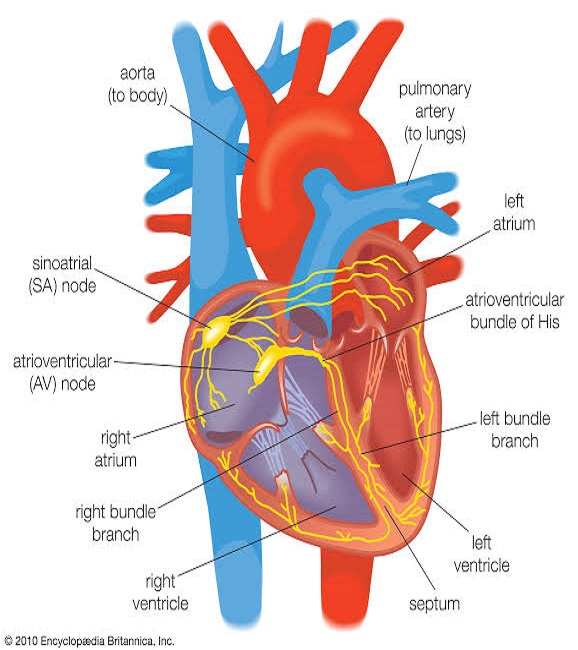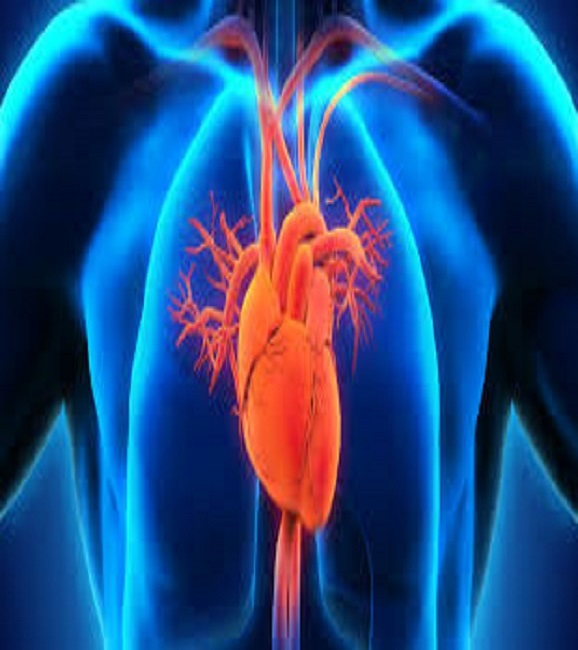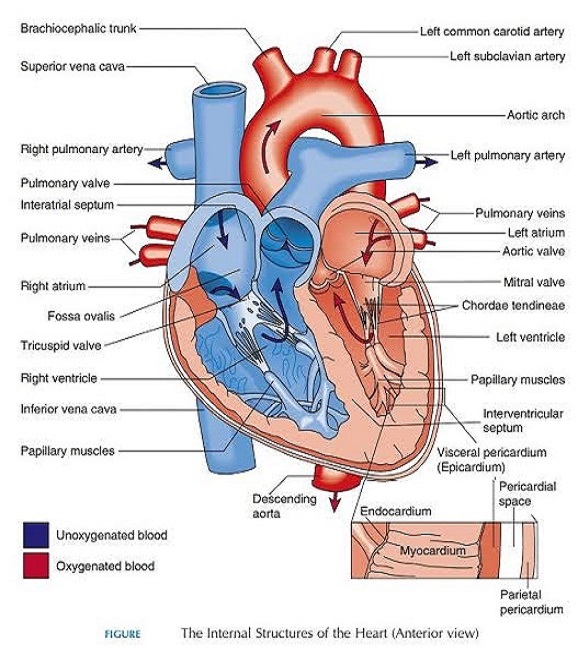




The simplest way to describe a heart is by its use. It is a human machine which has two pumps. one side pumps a blusih red
blood which has come from our food and oxygen. This blood is pumped into our lungs where it gets rid of carbon(iv)oxide and
gains more oxygen. Then the second pump takes over and pushes the new blood into our system.
Fortunately for us, this little lightweight machine is steady and tough. The heart has about ten pints of blood to work with,
and day and night it pumps bascially this same blood around and around our body. During one day our blood will take over 600
complete trips through the body.
Normally the heart beats 70 times each minute or slightly faster than every second. to a large extent we each control our
heart. For instance, if we run fast our heart may increase to eight times its usual speed. If we have a nightmare our mind sends
messages to our heart. We then wake up with it pounding very rapidly even though we have been resting.
While a good exercise is valuable, too much at the wrong age can also be dangerous. An athelete's heart may swell much larger
in size because he exercises. However, the person who is not used to running is asking for trouble if suddenly he runs too much.
Obviously,if our heart stops beating we will die. If it stops for only a few minutes and starts again, the lack of blood
flow to our head may cause brain damage.
Many things could be dangerous to the human heart. People who are tense most of the time give the heart a heavy burden to
carry. Smoking also makes parts of the body sluggish and may make the heart baet 80 times per minute rather than the regular
70. The added load may prevent the heart from lasting years longer. Eating the wrong foods can do the same thing. The heart may
suffer from angenia pectoris, while fluids moving from liver to the heart can cause pericardiac collection.